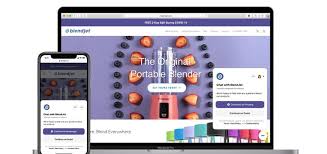Facebook has launched a new update for its Messenger chat plug-in for websites, which enables businesses to prompt direct message conversations with visitors to their site via a pop-up chat window.
Facebook has updated the design and format of the plug-in and made it easier to integrate into your website code. But the biggest change is that website visitors will now be able to start a Messenger conversation with your business, from your website, without having to log on to Messenger to do so.
As you can see here, with the new chat plug-in, there’s an option to start a Messenger conversation as a guest, reducing the obligation for site visitors who are looking to submit a query.
So how does that work? How can a Messenger discussion be maintained if the user doesn’t provide contact details to reply to?
The limitation here is that you can only engage with ‘guest’ users when that user is on your website.
As per Facebook:
“Guest chats” will end when the user decides to end the chat from the More menu, or 24 hours from the start of the conversation, whichever comes first. The guest’s name will appear as “Guest” followed by a short numeric string.”
If you try to send a message to a guest user after the guest’s account has been terminated, you’ll see an error message.
“The transcript of these “guest chats” will remain on the guest user’s browser for up to 24 hours. Businesses, however, will retain a copy of the conversation in their inbox even after the chat expires until they delete it.”
So it’s not as handy as being able to reply to a message when you have time, it’s made for direct, real-time response. But still, it could have significant benefit – Facebook says that businesses using the new chat plug-in have seen a 45% increase in customers inquiring about their products and services. Definitely worth consideration.
Facebook has actually been testing the new format with a select group of Pages for some time – back in May, social media expert, Matt Navarra posted this update.
We asked Facebook about it at the time, but they offered no further detail, and there was no mention of the functionality in the chat plug-in documentation. But now, it’s being made available to all businesses, with the plug-in available for implementation from your Facebook Page settings.
In order to set up the chat plug-in for your website:
“For WordPress, click here to install the official chat plugin from the Plug-in Store.
For all other websites, use the following steps:
- On your Facebook Page, click ‘Settings’ and select ‘Messaging’
- Scroll down to ‘Add Messenger to your website’, click ‘Get Started’
- You can customize the plug-in. Set a greeting message, response time, and theme color to suit your business needs. Enter the website domain(s) you’d like to add Messenger too. An example of a website domain is https://jaspers-market.com
- Once you’ve finished, the setup tool will automatically generate a code that you can copy/paste to your web page.
You can find more information about setting up the chat plug-in here, while Facebook also notes that the plug-in can also be enabled via WooCommerce, ManyChat, and Haravan.

You’re so awesome! I don’t believe I have read a single thing like that before. So great to find someone with some original thoughts on this topic. Really.. thank you for starting this up. This website is something that is needed on the internet, someone with a little originality!
Thanks for sharing this insightful article.
Thanks for simplifying a difficult subject.
This content stands out from the rest.
Subscribed instantly after reading this.
I learned something new today.
You made it so easy to understand.
Subscribed instantly after reading this.
This brought real value to my day.
Thanks for sharing. I read many of your blog posts, cool, your blog is very good.